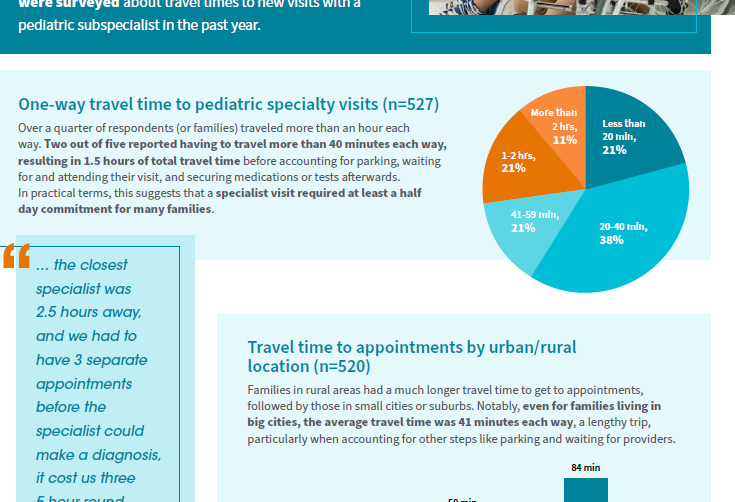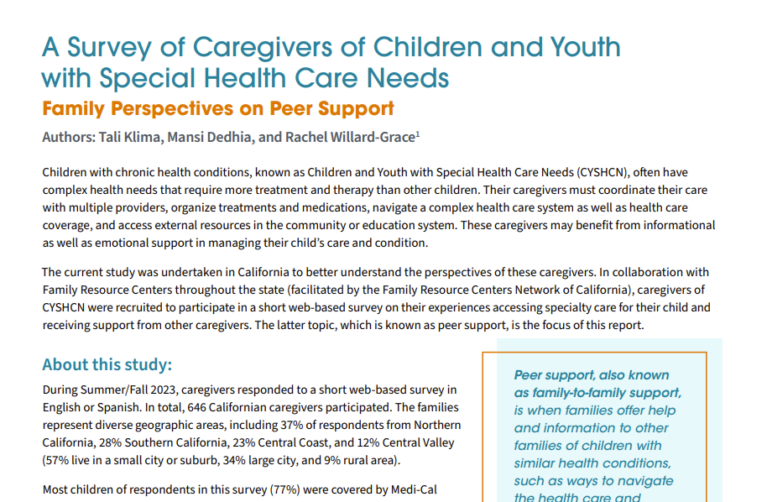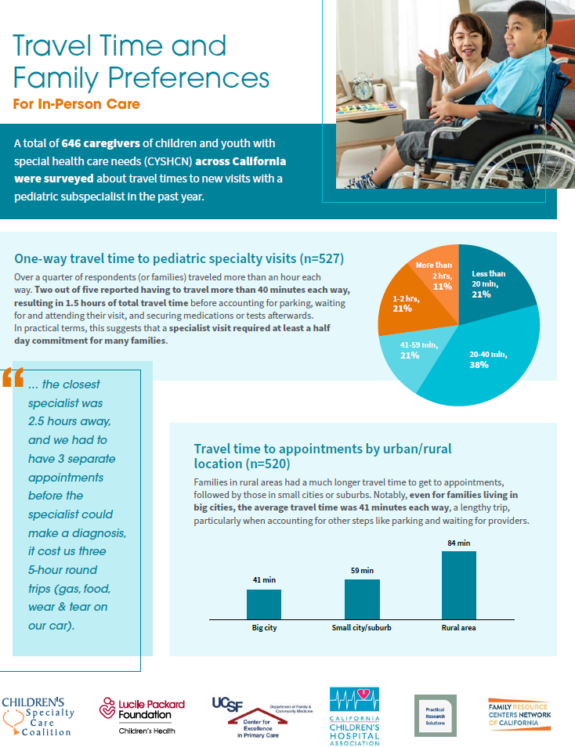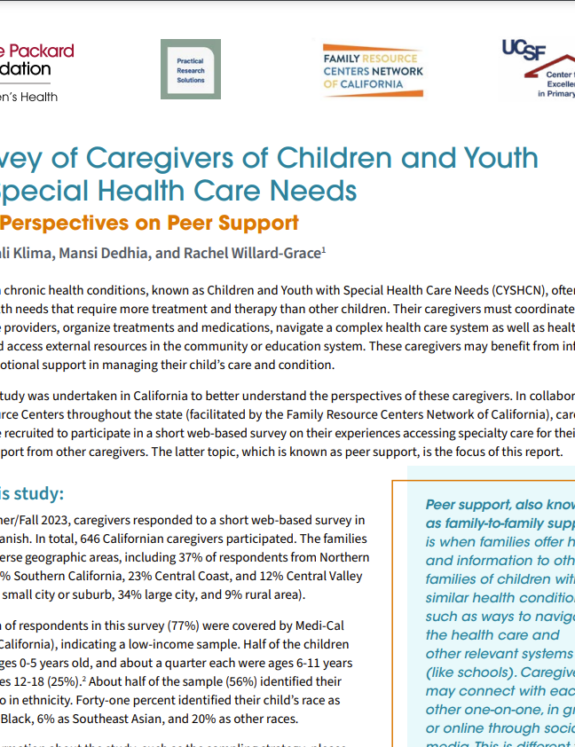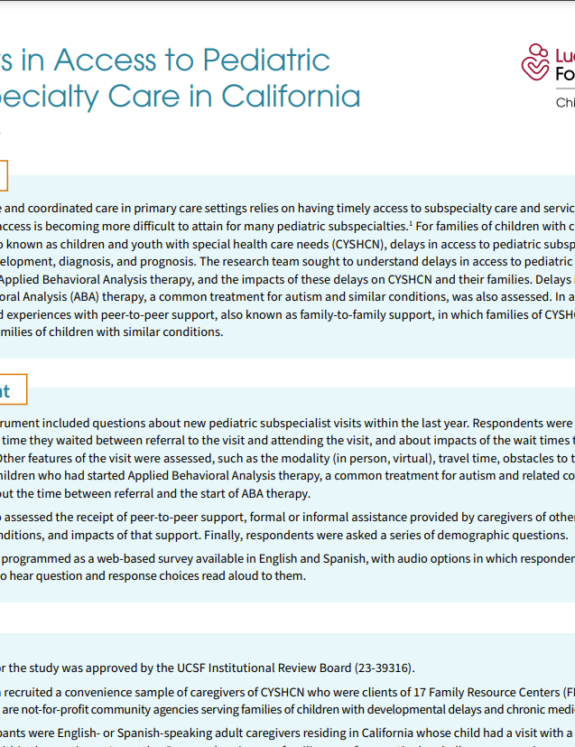Q&A on IEPs and Special Education: Corina Samaniego, Family Resource Network of Alameda County
Corina Samaniego knows how hard it can be for parents to advocate for a better education for their children with special health care needs. To help her son, she, too, has had to learn the alphanumeric jargon of special education: IEPs, LREs, SELPAs, 504 plans.
In her work as counselor at the Family Resource Network of Alameda County, Samaniego educates families about their legal rights to special education accommodations and helps them find the resources they need. The conditions she sees vary: autism, speech delays, cerebral palsy, orthopedic impairments, and hearing or visual impairments.
In the following Q&A, she talks about her work and advice to families.
How did you get involved in this work?
I have a 6-year-old son who has autism, so I needed to work part-time. I found it very interesting to help families, particularly monolingual families, get through the same situations I’ve been going through and to make it a bit easier for them.
Has your work helped you in getting a better education for your son?
Yes, enormously. I know my rights as a parent and I know where to find the right resources and services. I’ve been doing this work for about two and a half years. My son is mainstreamed into regular classes with an aide. He is doing great, but if things don’t go great, it’s good to be knowledgeable.
What concerns do parents typically bring to you?
There are families who have no idea what the special education system does and how to access it. We show them how to request an assessment for their child. If there are specific issues around safety or the child’s behaviors, we do try to give them as much information as possible. If we don’t have an answer, we always direct them to a resource that does. We always empower the parent as much as possible—I tell them that they’re going to be the voice for their child for the rest of their lives, as I am for my child.
For kids who have medical issues, parents run into situations where the school doesn’t have a nurse. So, how does their child get access to a nurse, and who’s going to replace the nurse if the regular nurse is out that day, and what’s the procedure if the child has a seizure or other medical emergency?
Even though they’re given information by the schools, a lot of families aren’t knowledgeable about their rights, like requesting an IEP (Individual Education Plan) meeting whenever they choose to. We recommend families get everything in writing and keep copies of everything. We advise parents to send letters or emails not just to the person they’re working with, but to someone above them to make sure it’s received.
Sometimes schools try to pressure families into signing IEPs right away. The school district knows that if they don’t get families to sign in a timely fashion, they get in trouble.
I had a family with a child who was entering school for first time. The parent wasn’t happy with placement the school recommended, but she didn’t know it was possible to ask to change the placement and that she didn’t have to sign the IEP. I told her, you have the voice, the power to decide what goes on. After that, she visited two other sites and found one that she felt was a better fit for her child. And she did it all by herself.
What other education-related services do you offer families?
We have different trainings we offer based on the age of the child. We have one training we call “make and take,” where we give parents a binder of all the health and education information they need so they can store it in one place. We also offer support groups in English, Spanish, Vietnamese, Mandarin, Korean and Farsi.
What are some particular concerns of families with language barriers?
Often, they don’t understand the process, and information isn’t given to them in their native language. Even if it is, it’s got these big words that people just don’t know. Families feel overwhelmed and pressured to sign documents. Culturally, a lot of families feel that if the service is given to them free, they have to accept it and take what’s given.
School districts do provide interpreters at IEP meetings. When we go with families to these meetings, we go as their support, not as an interpreter—but of course, if something’s not interpreted right, we help clarify.
We provide families with emotional support as well as information for them to read in their language. We also let them know that they are not alone—that in our agency all the staff have children with special needs. We say, I’ve been through the same situation and this is how I did it.
What are some best practices that you recommend?
We never turn anybody away. We are here to listen to what’s going on with the family. We have drop-in office hours. Also, we don’t have an automated voicemail system, you always get a live person when you call the main number. I know myself, if you keep hearing, “press this, press that,” you get frustrated.
How do you see schools changing in how they address the needs of the children you’re helping?
Schools are realizing that a lot of families are more knowledgeable about services that are available and that they know they don’t have to sign documents immediately. Every school district is following regulations, but they do it differently. Most of them are responsive to the families.
What do you most want parents of special needs children to know about navigating the special education system?
Be proactive, continue the fight, and don’t give up. Knowing that there are other families going through the situation helps.
photo credit: Corina Samaniego
